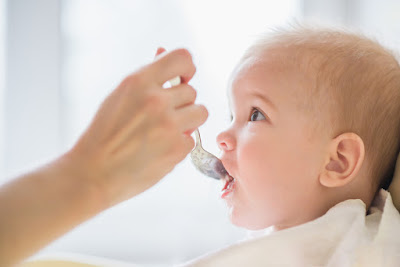 |
| Photo credit: Shutterstock |
Granted, Halloween is coming up, but this may
not be quite the fright you're looking for: A recent
study by the Clean Label Project found that
many of the most popular baby foods out there tested positive for
arsenic—including 80% of all infant formulas.
The study looked at 500 infant formulas and
60 brands of baby food products. Each product was scanned for over 130 toxins,
including heavy metals, BPA, and pesticides.
For a little added legitimacy, the Clean
Label Project had the products reviewed by a third-party chemistry lab to check
their work and look at other possible problems such as environmental
contaminants.
Now granted, the Clean Label Project didn't
publish their work in a peer-reviewed journal, so it's worth taking with a
grain of salt. However, their findings are pretty concerning: 65% of the brands
tested positive for arsenic, 36% for lead, 58% for cadmium, and 10% for
acrylamide. Some tested as high as 600 parts of arsenic per billion.
The brands in question include Gerber,
Enfamil, Plum Organics, and Sprout.
Naturally, Gerber has responded with doubt
regarding the study. In an email to USA Today, Gerber
said the study is generating "unnecessary alarm," adding that they
"want to reassure parents that the health and safety of babies is our
number one priority…all Gerber foods meet or exceed US government standards for
quality and safety."
So what's a good parent to believe, let alone
do? Speaking to Mercury News, Dr. Keith
Fabisiak, Assistant Chief of Pediatrics at Kaiser Permanente's Campbell Medical
Center, offered one solution: make your own baby food.
"When parents ask me the question, 'What
is the best brand of baby food to feed my baby?' my answer is always
home-made," Fabisiak said. "Even the baby foods that are labeled as
'organic' or 'all natural' can still contain significant amounts of
contaminants like lead and arsenic, so the best baby food is the one that you
make yourself."
Obviously that's not going to work for all parents,
so luckily there are other things you can do, like increasing your child's
intake of fruits and vegetables and cutting back on juice (or cutting it out altogether).
Some contaminants are just part of our
environment and can't be entirely removed. But it also behooves a parent to
learn as much as they can about the food their baby is consuming. Hopefully
government regulations around contaminants in food will continue to improve
with new studies and data as well.

